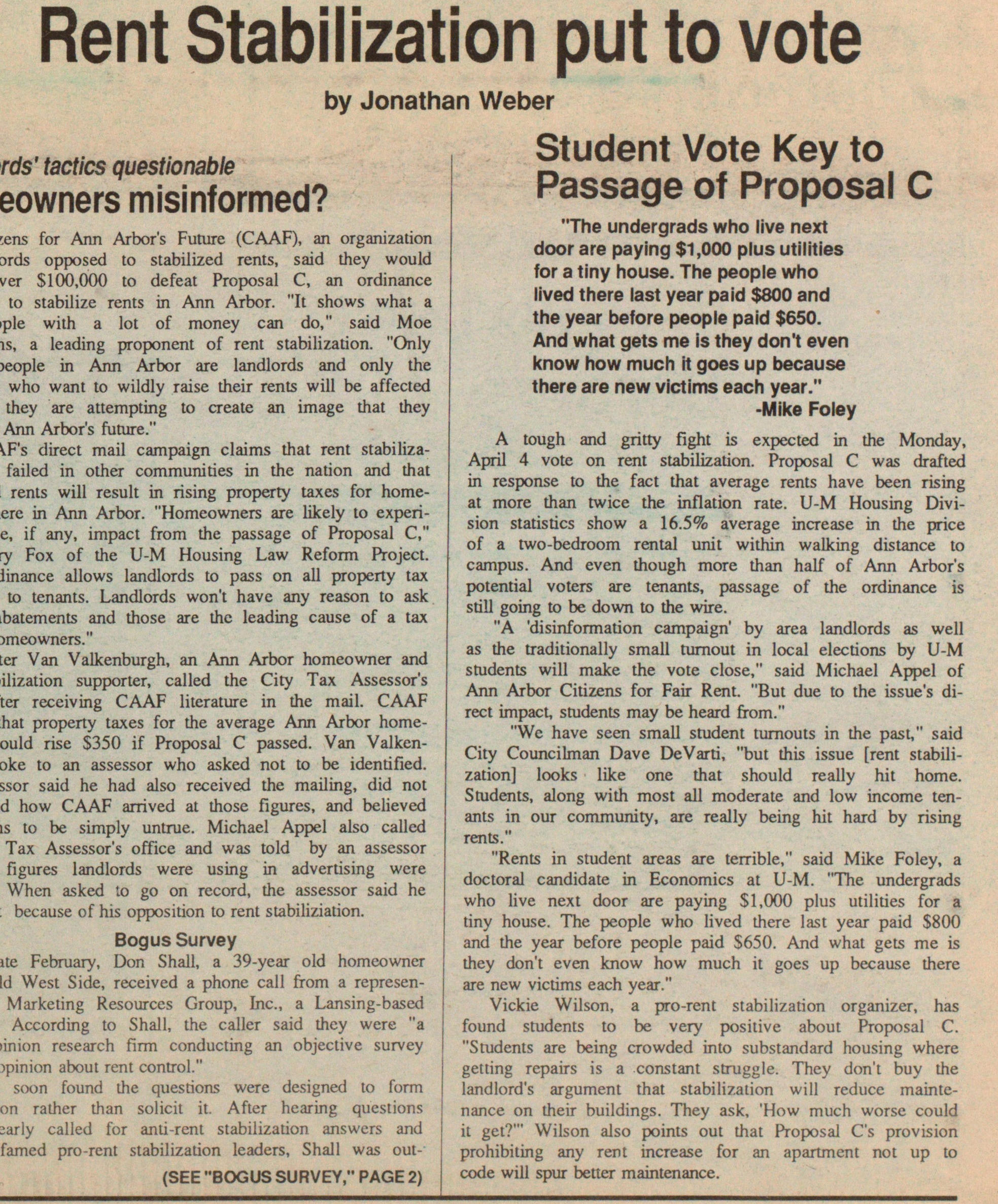Rent Stabilization Put To Vote

Student Vote Key to Passage of Proposal C
"The undergrads who live next door are paying $1,000 plus Utilities for a tiny house. The people who lived there last year paid $800 and the year before people paid $650. And what gets me is they don 't even know how much it goes up because there are new victims each year." -Mike Foley
A tough and gritty fight is expected in the Monday, April 4 vote on rent stabilization. Proposal C was drafted in response to the fact that average rents have been rising at more than twice the inflation rate. U-M Housing Division statistics show a 16.5% average increase in the price of a two-bedroom rental unit within walking distance to campus. And even though more than half of Ann Arbor's potential voters are tenants, passage of the ordinance is still going to be down to the wire.
"A 'disinformation campaign' by area landlords as well as the traditionally small tumout in local elections by U-M students will make the vote close," said Michael Appel of Ann Arbor Citizens for Fair Rent. "But due to the issue's direct impact, students may be heard from."
"We have seen small student turnouts in the past," said City Councilman Dave DeVarti, "but this issue [rent stabilization] looks like one that should really hit home. Students, along with most all moderate and low income tenants in our community, are really being hit hard by rising rents."
"Rents in student areas are terrible," said Mike Foley, a doctoral candidate in Economics at U-M. "The undergrads who live next door are paying $1000 plus Utilities for a tiny house. The people who lived there last year paid $800 and the year before people paid $650. And what gets me is they don't even know how much it goes up because there are new victims each year."
Vickie Wilson, a pro-rent stabilization organizer, has found students to be very positive about Proposal C. "Students are being crowded into substandard housing where getting repairs is a constant struggle. They don't buy the landlord's argument that stabilization will reduce maintenance on their buildings. They ask, 'How much worse could it get?'" Wilson also points out that Proposal C's provision prohibiting any rent increase for an apartment not up to code will spur better maintenance.